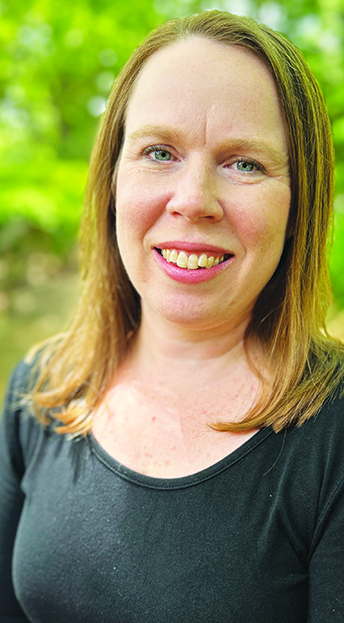Mocksville proposed budget includes planned water, sewer rate hikes
Published 11:54 am Tuesday, May 27, 2025
|
Getting your Trinity Audio player ready...
|
By Jeanna Baxter White
Word Master Media Group
Mocksville Town Manager Lee Rollins has submitted a balanced proposed budget for the Fiscal Year 2025-2026 to the board of commissioners.
The $8.48 million General Fund budget reflects the town’s commitment to long-term strategic planning, infrastructure investment, and sustainable growth, while maintaining the current property tax rate of $0.29 per $100 of assessed value.
“This budget is the result of thoughtful collaboration with our leadership team and Board of Commissioners,” said Rollins. “It represents an incremental but meaningful step toward realizing the town’s vision of a vibrant, modern community that still honors our small-town heritage.”
As required in a revaluation year, the budget includes a revenue-neutral tax rate of $0.2401 per $100, adjusted for an average tax base growth of 4.87%. This calculation ensures that the overall tax burden across the jurisdiction remains consistent despite rising property values. Mocksville’s property tax base increased by over $344 million, from $1.29 billion to $1.63 billion.
“It’s important to understand that the ‘revenue-neutral’ rate addresses the collective tax burden, not individual tax bills, which may still rise or fall depending on specific property values.
“We are not only investing in our infrastructure but also in our people. Our team is the foundation of our town’s continued success.”
Mocksville’s unassigned fund balance stands at nearly $10 million—160% of General Fund expenditures. “Maintaining a healthy fund balance is essential for sound fiscal management of the town and can be a valuable asset for emergencies and one-time opportunities,” said Rollins.
The town will also make its final $100,000 debt payment on a USDA loan used to extend utilities to Gildan in 2015, closing out the project.
It is recommended that the tax rate be set at the current rate of ($0.29/$100), which will generate $4,379,114 for FY 2025-2026. Of note, the top 10 largest taxpayers, all industrial, contribute approximately 40 percent of these revenues.
There will be a 3% increase for the law enforcement contract with the Davie County Sheriff’s Office as stipulated in year two of the current five-year agreement. Budgeted: $1,545,000
There will be a 5.2% increase for residential trash and recycling pickup from Republic Services. Residents will see an increase of $4.86 per billing cycle in their water and sewer bill.
The Water and Sewer Enterprise Fund, which operates independently from the General Fund, is meant to be self-sustaining with its own revenue stream. The FY 2025-2026 budget is proposed at $5.95 million. A 6% increase in water rates and a 14% increase in sewer rates are included, based on a rate study by Raftelis. These adjustments are necessary to comply with ongoing state and federal regulations, Rollins said.
By year’s end, Mocksville will decommission its water treatment plant and transition to a bulk water purchase agreement with Davie County Public Utilities, a move expected to mitigate long-term operating costs. “This regional partnership will help slow the rate of future cost increases while maintaining high service quality,” Rollins said.
The proposed budget incorporates multiple capital improvement projects, including: $250,000 for water line replacements; $250,000 for sewer line replacements; and General Fund investments focused on equipment replacement and infrastructure
“Our ‘Town Team’ has made this transition seamless. Their professionalism and commitment to service are evident in every aspect of this proposed budget.”
Mocksville residents are invited to review the budget proposal on the town website at https://mocksvillenc.org/current-budget/ or by visiting Town Hall.
Rollins encourages residents to attend the public hearing on the budget on Tuesday, June 3 at 6 p.m. in the Mocksville Education Building, 201 S. Salisbury St.t (the former Energy United Building).
Eric Thomas with the Development Finance Initiative (DFI) will share his evaluation of the five-acre former Energy United property recently purchased by the town. Commissioners will also hear from a consultant who will explain what a downtown master plan could look like and how it might benefit the community.




